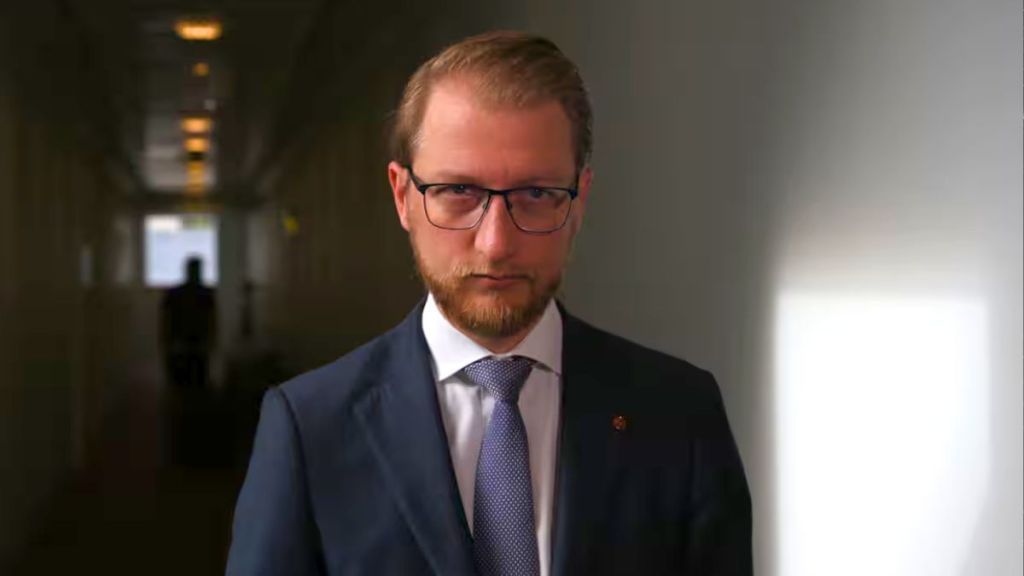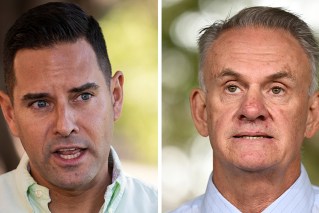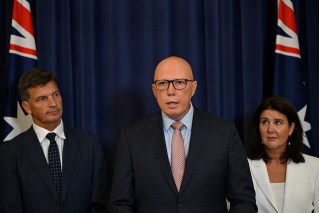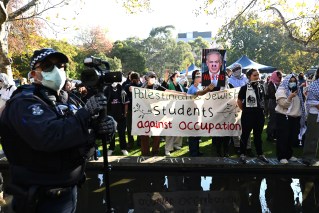Liberal senator at a loss to explain immigration detention quick fix

Source: X/ABC
A tough-talking Liberal senator has declined to explain how his proposed quick fix to a High Court immigration challenge would work.
Shadow home affairs minister James Paterson criticised the Albanese government for not having a plan when it came to dealing with the release of detainees.
The court last week struck down a Coalition government law that allowed people to be held in immigration detention centres indefinitely, including after their sentences were served, if they could not be deported.
Its decision immediately led to the release of 83 detainees and a highly charged debate on immigration and public order, led by Opposition Leader Peter Dutton.
But despite Dutton claiming he would put them back into detention, the Coalition has struggled to demonstrate how it would or could have responded differently to the High Court ruling.
On Sunday, Paterson said the government could use counter-terrorism laws to put the “highest risk” of the detainees behind bars.
“Critically, [it] would allow the government to apply to a court for a court to detain someone on the basis of the risks that they pose to the community,” he told ABC TV’s Insiders.
“It’s a well-accepted and well-tested area of law that could be applied.”
But none of the detainees released following the court order has been convicted of terrorism offences.
The continuing detention measures referred to by Paterson, or the High-Risk Terrorism Offender Framework, was adopted for a small cohort of up to a dozen people serving sentences for serious terrorism offences whose release in coming years might pose a risk to public safety.

Paterson said counter-terrorism laws could be used to put high-risk detainees behind bars. Photo: AAP
Paterson’s office did not answer questions sent on Sunday about whether he had made an error or been misleading when suggesting a terrorism fix.
The Senate was last month provided with information on the background of the detainees and the nature of their past offending.
Parliament passed emergency laws last week allowing those released to be subject to strict monitoring. Lawyers have criticised the legislation for being rushed and potentially open to future challenges.
“It’s hard to know what to make [of Paterson’s] proposals for even more extraordinary and extreme measures,” said David Manne, the executive director of Refugee Legal.
“The [government’s] new laws have already, in essence, been a copy and paste of terrorism control orders, but with two key differences: They’re not subject to independent scrutiny and an order by a court, and they’re indefinite.”
The suggested use of counter-terrorism measures is the latest in a series of opposition proposals for overriding the High Court ruling against the indefinite deprivation of detainees’ liberty.
“If I was writing the government’s policy, these people would be back in detention,” Dutton said.
But his earlier plan to carve out special “migration zones”, or parts of Australia where the constitution did not apply, was dismissed by experts as baseless or fantastical, The Guardian reported.
Home Affairs Minister Clare O’Neil said up to 247 more detainees could be released due to the ruling, which the government had no choice but to comply with.
“It is not possible [to re-detain them], and I know that Peter Dutton knows that,” she said.
The High Court overturned its 2004 ruling on indefinite detention, which had allowed people to be held without charge or prospect of release if they could not be deported.
It found the policy was an unconstitutional use of government power, the reasons for which will be published next year.








